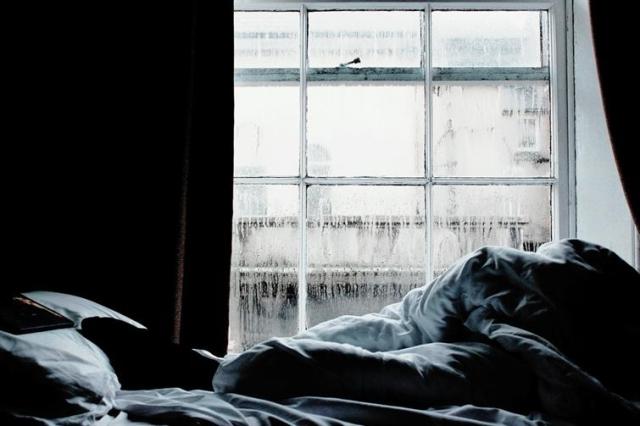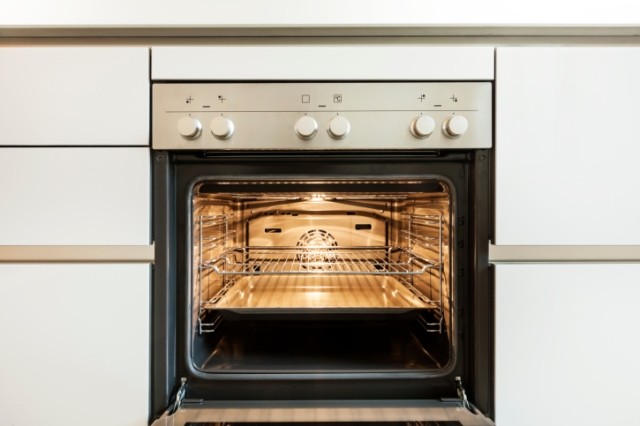Humidity can be great for plenty of things, from keeping your skin moisturized to minimizing the spread of airborne viruses. However, coming home to a humid apartment can be a real damper. If you’ve ever come home to an apartment thick with muggy air, you may have (at some point) simply wondered…why?
Primary Causes of Home Humidity
High home humidity ultimately boils down to an accumulation of excess moisture. Excess moisture can accumulate when you:
- Have a leak in your apartment
- Poor ventilation
- Shower, cook, and/or clean in a room (or rooms) without windows or fans
But how do you know for sure that your home is too humid?
Signs of a Humid Home
There’s a good chance that the humidity level in your apartment has gotten too high if:
- Your windows have condensation on them
- The air feels still or stale
- There are wet stains on your walls and ceilings
- You can smell a musty odor
If you still aren’t sure if your home is too moist, you can measure your home’s humidity levels with a relatively inexpensive humidity monitor. The ideal home humidity levels fall between 40% and 60%. Your indoor humidity may change based on seasonality—it’ll likely trend more towards the upper end of the range during summer and towards the lower end of the range during winter.
How to Reduce Home Humidity Levels
There are numerous ways to clear the air in your apartment when it starts to weigh you down. Here are a few of the most effective ones (so you don’t get too fogged up):
- Ventilate. Use exhaust fans in the kitchen and bathroom(s) to get rid of any excess moisture. If you don’t have access to (or functioning) exhaust fans, be sure to crack open a window to get rid of the stale air. Covering pots and pans while cooking can also suppress additional moisture levels in your apartment. Turn on any ceiling or box fans to increase air circulation. Make sure that your clothes dryer vents outside, if you have one.
- Turn on the A/C. While you may think you’re saving on your electric bill by not running your air conditioner, you’re actually contributing to that muggy feeling in your apartment by not doing so. Instead of turning off your A/C completely, set your thermostat to a higher-than-normal temperature. Or open the windows and turn on fans to stay cool.
- Use a Dehumidifier. Dehumidifiers do exactly what you need them to: take excess moisture out of the air. They also get rid of musty odors, protect furniture, reduce pests, and prevent the growth of mold and mildew in the process. Get this dehumidi-done.
Effects of Having a Humid Home
If you’ve reached this point of the article and begun thinking, “Oh, I’m from Florida/Texas/Louisiana/an actual swamp, I don’t need to worry about indoor humidity when I’ve survived extreme outdoor humidity.” Consider the following:
- Mold grows and thrives in humid spaces. Consistent exposure to mold leads to an array of health problems, including stuffy nasal passages, coughing, wheezing, and throat, eye, or skin irritation.
- Heat exhaustion can be a result of a living in a too-humid home. After you’ve started sweating, the excess moisture trapped in a humid home keeps the sweat on your skin instead of letting it naturally evaporate. You may become dehydrated as you lose moisture through your skin. If you experience this issue, be sure to drink lots of water and avoid physical exertion until your body adjusts to the higher temperature (or you dehumidify your apartment).
- Indoor air pollutants are exacerbated by high humidity levels. Dust mites, in particular, thrive in humid environments. Using an air purifier and changing your A/C filter once per month will help mitigate these effects. However, it’s best to just reduce your home humidity levels to squash the issue.
- Higher cooling costs go hand-in-hand with humid apartments. The high humidity levels make the home feel hotter, so you’ll probably run the air conditioner more to feel cooler (and potentially end up with heat exhaustion as we discussed earlier).
Keep in mind, you won’t have to deal with these effects the sooner you get your home humidity levels (your own personal…humidex) back in that ideal range of 40% to 60%. Dehumidifying your apartment is worth the effort!






